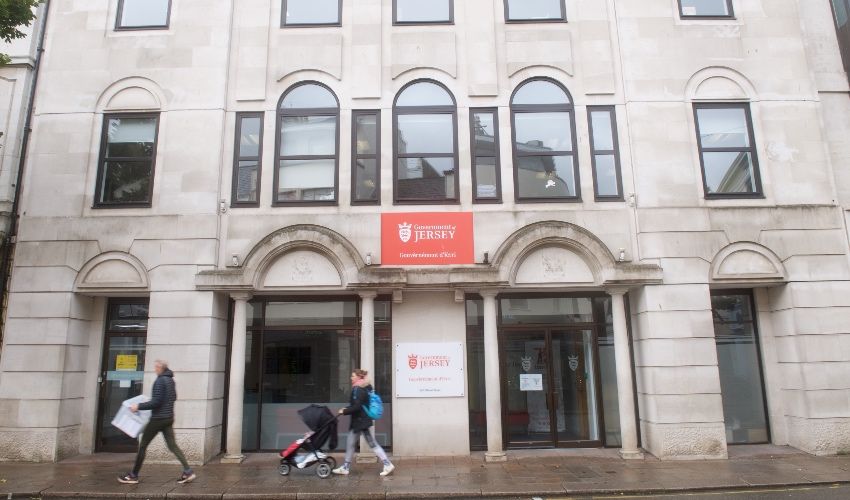


The next Government CEO should be supported by a senior team of up to six people – including an in-house lawyer, ‘Cabinet Office Director’, and Private Secretary – according to a report produced for the Chief Minister by a former head of Jersey’s civil service.
John Mills CBE, who is now the island’s Charity Commissioner but was once its top civil servant, was asked by Deputy Kristina Moore to advise on how the role of CEO should change, following the shock resignation of incumbent Suzanne Wylie in March.
Two days after her resignation was announced, Mr Mills committed to write an ‘options paper’ on how the role might be ‘redefined’ – to, in Mr Mills’s words, “give the new CEO a bigger and better set of levers to make things work well in support of the Council of Ministers”.
Mr Mills gave his paper to a group led by Deputy Moore reviewing the CEO role on 5 April but his thoughts have just been made public.
Last month, Dr Andrew McLaughlin – a Jersey resident who used to lead Royal Bank of Scotland International – was appointed Interim CEO on a fixed-term contract from September until next May.
Part of his job will be to lay the foundations for a new, permanent CEO.

Pictured: John Mills CBE wrote a paper on how the next CEO's role might be 'redefined', which he sent to the Chief Minister in April.
Mr Mills, in his paper, does not call for wholesale change. “The wheel does not have to be reinvented, but the existing one oiled well and given new tyres,” he writes.
He also argues that a single CEO should remain as head of the civil service and there does not need to be any change in the law.
However, Mr Mills does recommend that there is a “significant strengthening of the direct support available to the CEO”.
This includes the creation of a “small and well-supported Corporate Management Board – no more than five or six members – with a clear remit to focus on corporate leadership. This would replace the structure which is currently known as the ‘Executive Leadership Team’.
The board should include the CEO, Treasurer, a new ‘Cabinet Office Director – to support ministers and take a lead on strategy and policy development and advice, perhaps two other Chief Officers, a General Council – a new role to provide legal advice, and the CEO’s Private Secretary.
Mr Mills advises: “Other direct reports to the CEO should be managed bilaterally or in other ways such as policy review meetings, with right of access to the CEO assured for all Chief Officers.
“Just because there are a given number of direct reports does not mean that everyone needs to sit round a management board table for hours every week. There is no point in having an executive board too big to work smartly and maybe with an unclear remit.”
He adds: “At the heart of this is flexibility for the CEO to bring the chief officers (and, indeed, other senior staff) into the frame of business in an adaptable way.
“The new CEO will have her or his views on how best to manage this. They, the chief officers, are equally an integral part of ‘redefinition’ and it is absolutely necessary that, as a team, they step up to the mark (and held accountable accordingly) even though they won’t all be playing in the same position.
“This model does not require two of the Chief Officers to be ‘Assistant Chief Executives’ but that title could be given to the two chief officers who would be on the CMB if that was to be of benefit. It follows that this model does not provide for a division of responsibilities under those two Chief Officers, as presently provided for in the new Cabinet Office structure.”
Mr Mills also recommends: “The recruitment must begin as soon as possible but the interim period is nevertheless crucial.
“The new CEO must know that he or she will be joining an organisation which has established a satisfactory structure and is consciously working to improve and getting to know what ‘good’ looks like.”
The Chief Minister has also previously encouraged applicants from local candidates. However, Mr Mills report stated that "a view must be taken on whether it is important actively to aim for a 'local' appointment and, if so, how that might be brought into scope without undermining the principle of appointment on merit."
You can read the full report and recommendations here.
Comments
Comments on this story express the views of the commentator only, not Bailiwick Publishing. We are unable to guarantee the accuracy of any of those comments.